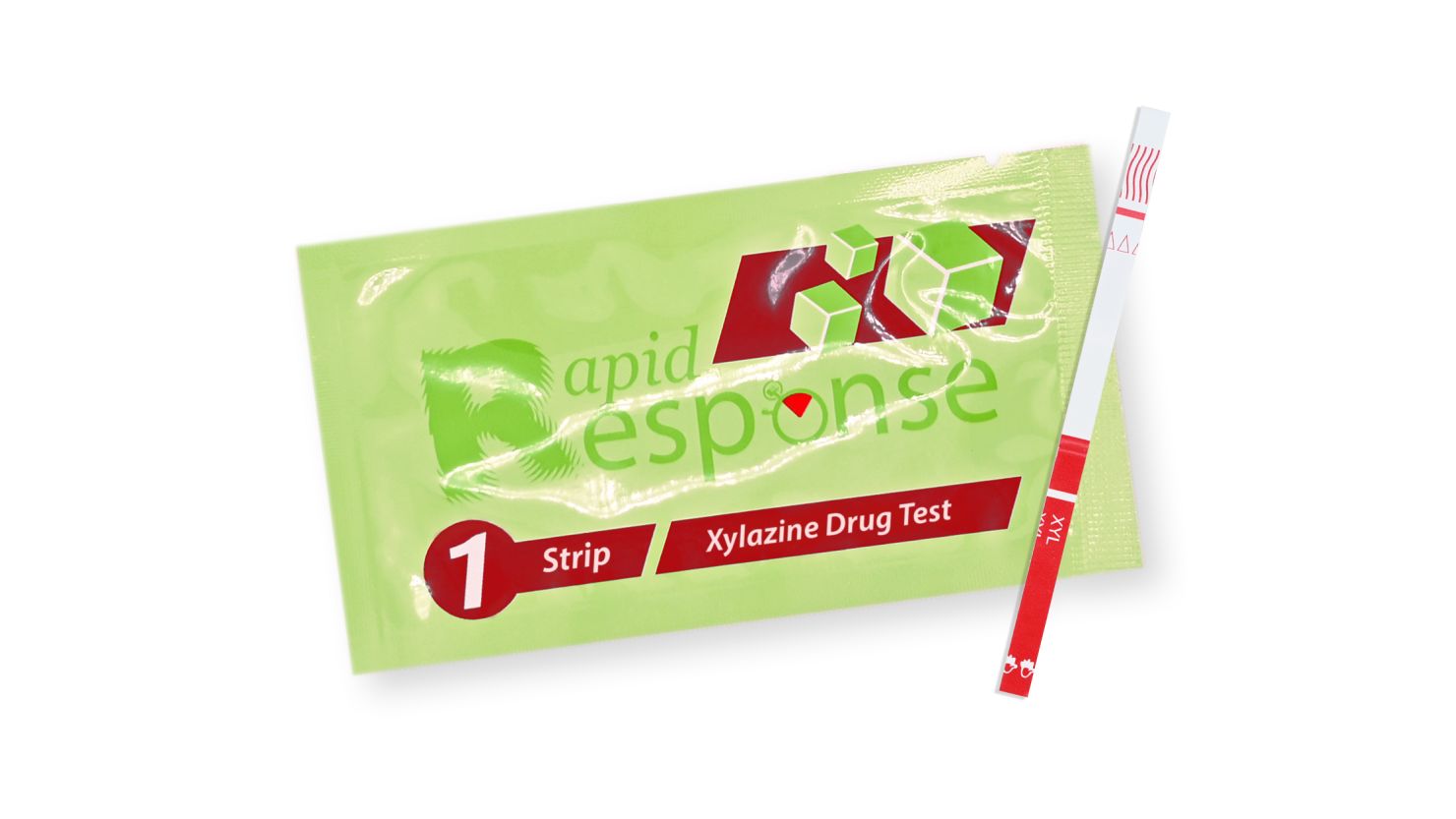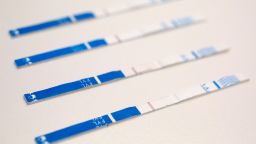The biotech company BTNX says it is shipping out new test strips this week that detect the presence of xylazine, an animal sedative that officials say is increasingly being mixed with fentanyl. As with fentanyl test strips, these pieces of paper have a reagent that can help users detect whether a drug has any xylaxine in it.
Commonly called “tranq” or “tranq dope,” xylazine has not been approved for human use. The drug has heavy sedative effects like an opioid but isn’t one, so it doesn’t respond to the opioid overdose antidote, naloxone, also known as Narcan.
Fentanyl is a fast-acting opioid, and users say that adding xylazine can extend the duration of the high. However, the drug is also associated with severe soft-tissue wounds and necrosis – sometimes described as rotting skin – that can lead to amputation.
The US Drug Enforcement Administration issued a public health alert this month noting that xylazine is widespread and has been detected in about 23% of fentanyl powder and 7% of fentanyl pill seizures.
The test strips cost $2 each and are sold in boxes of 100, BTNX marketing manager Molly McKay said in an email to CNN. The strips are inserted into a mixture of water and the drug to be tested, and they return a positive result when xylazine is present. However, they cannot test for quantity or potency of the drug.
Get CNN Health's weekly newsletter
- Sign up here to get The Results Are In with Dr. Sanjay Gupta every Friday from the CNN Health team.
A study published last week by the City of Philadelphia Department of Public Health found the test strips to be highly sensitive and said they gave false results only when lidocaine was also present in the drug mixture.
This kind of drug testing or drug checking is a way of making drug use safer that’s commonly known as harm reduction. Instead of demanding complete abstinence, harm reduction takes mitigation steps to keep users safe, like improving access to clean needles and naloxone.




